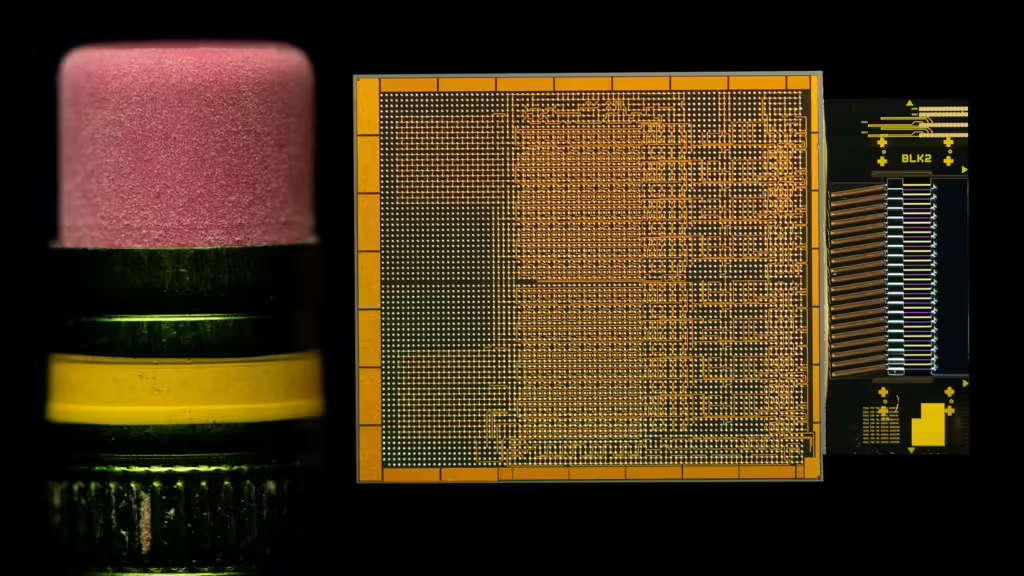Intel Corporation has achieved a groundbreaking advancement in integrated photonics technology for high-speed data transmission. At the Optical Fiber Communication Conference (OFC) 2024, Intel’s Integrated Photonics Solutions (IPS) Group unveiled a pioneering achievement: the industry’s most advanced fully integrated optical compute interconnect (OCI) chiplet, co-packaged with an Intel CPU and actively transmitting data, enabling co-packaged optical input/output (I/O) within emerging AI infrastructure for data centers and high-performance computing (HPC) applications.

The fully integrated OCI chiplet leverages Intel’s proven silicon photonics technology, incorporating a silicon photonics integrated circuit (PIC) with on-chip lasers and optical amplifiers, integrated alongside an electrical IC. Presented at OFC, this OCI chiplet was demonstrated in conjunction with an Intel CPU and is poised for integration with future CPUs, GPUs, IPUs, and other system-on-chips (SoCs).
This inaugural OCI implementation supports bidirectional data transfer rates of up to 4 terabits per second (Tbps), compatible with PCIe Gen5 standards. A live demonstration highlighted a transmitter (Tx) and receiver (Rx) connection between two CPU platforms via a single-mode fiber (SMF) patch cord. The CPUs conducted optical Bit Error Rate (BER) measurements, showcasing the Tx optical spectrum featuring 8 wavelengths spaced at 200 gigahertz (GHz) on a single fiber, complemented by a 32 Gbps Tx eye diagram indicating robust signal quality.
The current chiplet supports 64 channels of 32 Gbps data in each direction up to 100 meters, utilizing eight fiber pairs with eight dense wavelength division multiplexing (DWDM) wavelengths per pair. Despite potential limitations in practical applications due to latency considerations, the co-packaged solution is highly energy-efficient, consuming merely 5 pico-Joules (pJ) per bit compared to approximately 15 pJ/bit for pluggable optical transceiver modules. Such efficiency is crucial for addressing the power demands of data centers and HPC environments, particularly in the context of AI’s increasing computational requirements.
Intel’s OCI chiplet is currently in prototype stage, with ongoing collaboration with select customers to co-package OCI with their SoCs as an optical I/O solution.